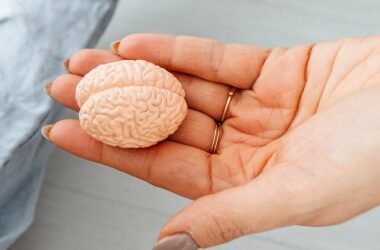Premature babies and brain development
A large part of brain growth in a child occurs in the final half of pregnancy. For premature babies, the risks associated with that depend on how early the baby is born.
According to researchers at the McMaster University (Canada), the final two months in the womb are crucial to the development of the brain and to adapting and improving it. Premature birth can have an adverse effect on that. Researchers at Brigham and the Women’s Hospital of the Harvard Medical School confirm this: “Premature babies’ brains cannot always develop as well as those of babies born around the due date.”
Premature birth
We speak of premature birth if a baby is born before completing 37 weeks of pregnancy. Over 70 percent of babies are born between 34 and 36 weeks of pregnancy. Most preterm births are the result of a spontaneous premature birth or the rupturing of the amniotic sac (waters break).
Discover and stimulate your baby's mental development
Download nowGrowth process of the baby brain
Neurons in the head of the fetus arise as a mass near to the center of what becomes the brain. These and the glial cells (or neuroglia – that support the communication between neurons) grow quickly and, at the same time, seek connections with other cells. The brain produces billions of connections during the final weeks of pregnancy. It creates more connections that it actually needs. After which, the brain tests all the cables and connections, as it were, to arrive at a ‘slimed down, efficient machine’.
Dr. Sandra Witelson of McMaster University: “Normal early development of a child’s brain can be impaired outside the womb. In the womb, the child floats in fluid; some sounds are audible and the eyelids are closed. At birth, also with preterm birth, a baby is suddenly submerged in sights, sounds and touch.” That stimulates the brain while it is still developing.
Possible harm
Premature birth most probably interrupts the migration of the nerve cells, the growth of the glial cells and the ‘testing and trimming’ carried out by the brain. “Premature children will carry most of the neurons through into adult life, but it is possible that they are not in the right places or are not connected or tested correctly.”
Did this article help you?
Share this article
Receive a notification at the start of a leap!
Would you like to be prepared when your baby is about to enter a leap? Sign up for our leap alarm for free and always receive a notification when a leap is about to start!




